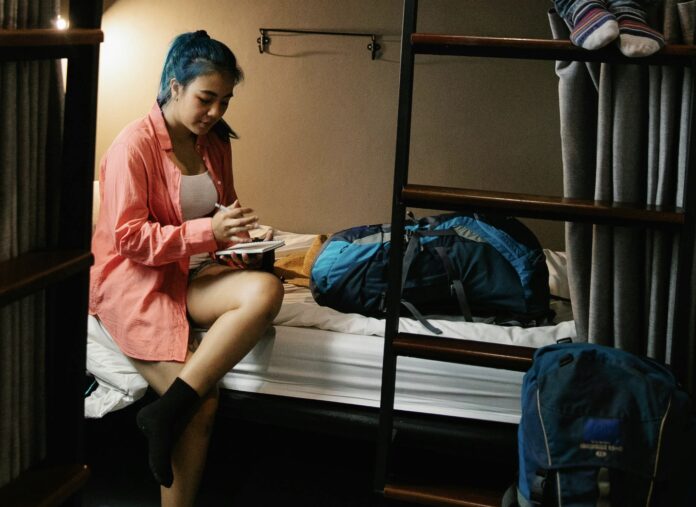In an era of unprecedented material wealth and technological progress, many young people paradoxically feel untethered and purposeless. The comforts and gadgets of modern life do not fulfill the deeper needs of the human person.
A 2023 Harvard study revealed nearly 60% of young adults in the U.S. reported lacking “meaning or purpose,” with half suffering mental health challenges from uncertainty about their direction in life. This crisis demands urgent attention.
Yet, we can’t simply ameliorate symptoms. More mental health care, while helpful, is not enough to solve the deeper issue. We need a shift in how young people experience challenge, responsibility, and their place in the world.
For some time, we’ve promoted false ideas about flourishing, that we must chase comfort and personal success. We have downplayed the power of struggle, duty, service, and sacrifice that forge purpose and belonging. Today’s young people encounter few transformative rites of passage that mark the transition to maturity. Traditionally, these were found in religious rituals, apprenticeships, and military service. As Americans have turned away from religious practice and communal life, we have lost more than gathering places; we have also lost rituals that help us confront the limits of our existence: birth and death, childhood and adulthood, knowledge and ignorance. In encounters with limits, we clarify our purpose, gain maturity, and discover our vocation.
For many, adolescence has become a period devoid of meaningful rites of passage and experiences essential to maturing. Yet, outside the military, they are conspicuously absent in the United States today. Either we’ve become too cautious, too comfortable, or both.
Consider why we remember the 1950s as a golden age of American life. The generation that came of age during and after World War II had confronted death — the ultimate limit — up close. Through the rituals of military service and the realities of war, they were forced to reckon with their mortality and, in doing so, found a deeper sense of meaning and purpose. As Michael Meade argues, “when rites of passage disappear from conscious presentation, they nonetheless appear in unconscious and semiconscious guises.” Today, many young people seek that same sense of heroism and purpose through video games or social media. But what if we created more opportunities for them to engage in something greater, to be heroic, and to do something constructive and meaningful for themselves and others?
Policy cannot manufacture meaning, but it can create opportunities for young people to test their limits, build resilience, and cultivate purpose constructively. Our desire for greatness is not something to suppress but to cultivate.
This requires rethinking how we prepare young people for adulthood, ensuring they encounter real challenges that shape character and strengthen their sense of belonging. Two key shifts could make a profound difference: We can reform education systems to facilitate meaningful encounters with limits and make gap (or, better, “launch”) years universal.
Our education system needs to do a much better job of allowing young people to test their limits and discover their greatness. Sitting behind screens or passively absorbing information does little to develop the courage and self-reliance necessary for a purposeful life. Instead, education should provide structured opportunities to test one’s capabilities. Outdoor experiences — paddling a rushing river, scaling a cliff, or spending time alone in nature — demand resilience and self-mastery that classroom exercises cannot replicate. They teach habits that are foundational to maturity and purpose.
Frankly, we will not discover our greatness sitting behind a Chromebook or playing an “educational” video game. Our young people need a much healthier dose of programs like Outward Bound and far less screen time. These outdoor experiences should not be optional or reserved for the privileged few, but should be a core part of every young person’s education.
Similarly, we need to reimagine the transition from high school to adulthood. Gap years — between high school and college or career — are typically for the wealthy. But what if every young American could spend a year away from home, encountering their limits and serving a purpose greater than themselves?
We could create programs like the Civilian Conservation Corps, where Depression-era young people worked to build and preserve America’s natural and cultural resources. We need a national service fit for today. The key is that these experiences must occur away from home, with peers and mentors, and in contexts that challenge them to grow by confronting their limits.
Such a program would help young people mature while fostering a deeper sense of E Pluribus Unum. By living and working alongside others from different backgrounds, they would experience the diversity of our country and form bonds that transcend differences.
What’s more, this vision may not require new spending. Could the money spent on the traditional 12th-grade year fund a launch year for every young American, giving young people a more meaningful, exciting, and transformative experience?
President Roosevelt lamented the “tragedy of waste” — the wasted potential of Americans left idle during the Great Depression. Today, we face a similar tragedy: a generation of young people glued to social media, disconnected from meaningful challenges, and unsure of their purpose. It is time we call the next generation to something great. We should mobilize the energy of our governments, institutions, and communities to ensure that no one is lost to restlessness, loneliness, or meaninglessness.
Pope Benedict XVI told the world that we are not made for comfort. We are made for greatness. It is time we allowed every young person in America to discover their capacity for greatness. It will most certainly make America great again.
